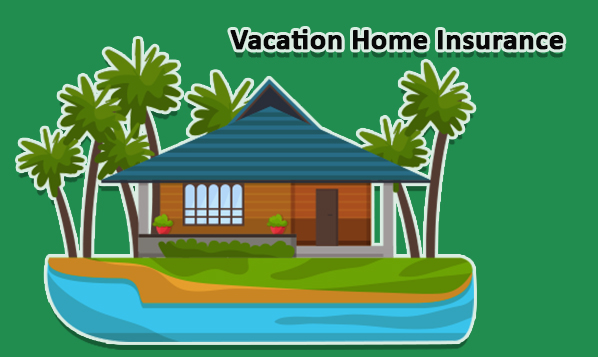Having a vacation home is a dream come true that offers space to relax and the opportunity to generate rental income. However, insurance for your usual residence is not the same as insuring your vacation home. There are often special dangers with holiday homes, such as long vacation times, extreme weather conditions, or liability problems when renting to visitors.

For these situations, vacation home insurance offers specialized coverage that covers theft, property damage, liability claims, and more. Whether you use the home for yourself or to entertain, having the appropriate policy will give you peace of mind and ensure the safety of your investment. This article covers the basics of vacation home insurance, what it covers, and how to get it.
What is Vacation Home Insurance
Vacation home insurance is a type of homeowner’s insurance that covers a second home or vacation home that is owned but not occupied full-time. Since holiday homes are not inhabited, insurance companies see them as a higher risk. Due to frequent visitors, homes near the coast may be more vulnerable to theft or damage. Additionally, unoccupied second homes may take longer to notice water damage, increasing the possibility of insurance claims.
How Does Vacation Home Insurance Work
Similar to a major home policy, vacation home coverage can protect your assets, property, and possessions while you are not living in or renting out your primary residence. Because of the additional risks involved, insurance is more expensive than primary residences. Additionally, coverage may be more limited than that of primary residence insurance.
Coverage Types for Vacation Home Insurance
Vacation home insurance can offer limited insurance coverage. However, you can improve your protection by adding coverage to your policy. To ensure the security of your second home, consider the following:
Personal Property Coverage
This type of coverage covers your belongings, including clothing, appliances, and furniture. Although this is a common feature of home insurance policies, you can personalize it to ensure everything you own is covered.
Personal Liability
This can help pay legal or medical fees if you are found liable for an injury sustained on your property by someone who does not live where you live.
Flood Insurance
Flooding is not covered by standard home insurance. Additionally, there may be a higher risk of flooding or water damage if your second home is located near a body of water.
Full Replacement Cost
This additional coverage covers up to 125% of your coverage amount and covers the entire cost of rebuilding your home in the event of a total loss. Depending on where you live, you may be entitled to up to 150%.
What Does Vacation Home Insurance Cover
The insurance coverage of vacation home insurance differs slightly from regular household contents insurance due to the non-permanent occupancy. Your insurance company may design your policy based only on specific risks, rather than covering everything that a standard home insurance policy might cover.
This means that your holiday home insurance will contain a specific list of covered events, which may include damage from:
- Smoke
- Fire
- Lightning
- Explosions
- Theft
In addition, liability insurance can be purchased to cover any personal injuries that someone may sustain on the construction site. Medical insurance may also be included in the policy to cover the medical expenses of an injured person. However, your provider may extend your home contents insurance cover to a holiday home or second home if you currently have one for your permanent property.
Do I Need Vacation Home Insurance
Considering factors such as location and insurance requirements, your vacation property will need its home insurance policy. Separate flood insurance may be required to protect your money in the event of flood damage, especially if your vacation home is near a lake or beach. Earthquake insurance can be helpful if your home is in an earthquake-prone area.
However, your premium may be affected by taking out additional coverage or additional insurance. If your second property is vacant or rented, there may be additional insurance considerations. To obtain the appropriate policy, we recommend speaking to an insurance agent
How Much Does Vacation Home Insurance Cost
The home’s features, insurance coverage, and the homeowner’s claims history all influence the cost of vacant home insurance. For a home insurance policy worth $300,000, the national average annual home insurance premium is $2,304.
When determining premiums, insurance companies consider factors such as location, type, condition, and claims history. ZIP code and credit history may also be used, although certain states prohibit such use. In addition, the premium is also influenced by the deductible and the type and amount of coverage.
Does Insurance Work Differently For a Vacant Home
Damage to an empty home is not covered by a typical home insurance policy. If your holiday home is empty for a few weeks, you should consider vacancy insurance, which is designed to provide protection and protection for unoccupied houses. Unoccupied or vacant home insurance is ideal for those who rent out a second home, own a second home for seasonal living, or travel for an extended period.
How to Get Vacant Home Insurance
Purchasing insurance for a vacation home or second home is similar to purchasing home contents insurance for a primary residence. Comparison shopping is the first step. When comparing insurance from different insurers, it makes sense to check the following:
- What’s covered and what’s not
- Any limitations about particular property kinds or features
- Deductibles and premiums
- You might be able to lower your premium expenses by taking advantage of discounts.
By adding a home security system or combining policies, you may be able to lower the price of your vacant home insurance, depending on your insurer. By installing smoke or carbon monoxide detectors, you may also be able to receive discounts from your insurance company. You can get the best price on vacation home insurance by researching these and other potential savings before you buy.

